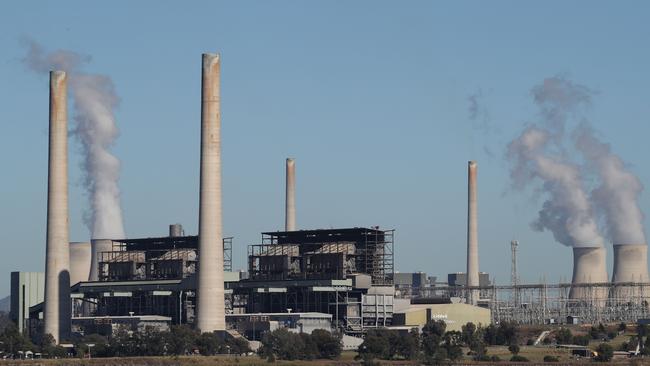Gas retailer Weston Energy’s collapse stirs call for Labor intervention
The sudden shut down of Weston Energy has hit over 400 companies, with the industry calling on the Albanese government to respond to soaring prices that could push more to collapse.

Hundreds of Australian businesses face fresh volatility after the collapse of a major national gas retailer with the Ai Group warning more energy suppliers face the prospect of collapse and calling for the Albanese government to respond to soaring prices.
Weston Energy, which provides gas to more than 400 companies and government agencies, ceased trading with immediate effect on Monday, creating uncertainty for major manufacturers with 7 per cent of the east coast’s commercial and industrial market forced to find a new supplier.
The company said it could no longer finance cash flow requirements of its trading portfolio “on a timely basis” with prices rising over 180 per cent since April, and almost three times higher than at the start of the year.
The wholesaler started in 2016 in NSW and expanded to the ACT, South Australia, Victoria, and Queensland the following year.
The Ai Group, which represents Australian industry, said Weston’s collapse was a warning sign on energy costs.
“The cessation of gas trading by Weston Energy plunges hundreds of businesses across Eastern Australia into uncertainty around their energy bills and is a warning of more pressures to come on business and households from high energy prices,” Ai Group chief executive Innes Willox said.
With spot gas prices up to four times higher than normal levels and wholesale electricity prices in NSW on track to finish the June quarter twice as high as the previous record, Mr Willox called on the Albanese government to respond.

“These dramatic market movements create the risk that more energy retailers are caught out in the months ahead. Energy users face risks in turn,” Mr Willox said.
“The wider issue is that the underlying energy price rises will have a huge impact on businesses and households. The Federal Government needs to respond.”
“The next few years look very difficult for energy users. It is urgent that the new Government bring together energy users, the States, energy regulators, energy suppliers, and other stakeholders to find a way through.”
Over 180 large and medium-sized customers with 1,140 sites in Victoria were affected by Weston’s market suspension, according to the Essential Services Commission.
A retailer of last resort scheme has been triggered allowing big users to find a new supplier.
Most big energy users can manage their exposure to wholesale power price spikes by entering hedge contracts that lock in firm prices or signing up to contracts that lock in a specified rate.
However, Weston purchased most of its gas on the spot market which has swung from just $8GJ at the start of 2021 to around four times that level currently.
The move follows just days after thousands of households were slugged with a doubling of power prices as retailers passed on surging costs, sparking fears of small operators collapsing from volatile market conditions and fuelling predictions annual bills may jump by hundreds of dollars this year.
Victoria on Tuesday increased its default power prices by 5 per cent on average from July 1, reflecting surging wholesale costs in the national electricity market.
The Victorian default offer - a price cap on what retailers can charge customers on basic standing offers - means the average annual bill for households on the offer will increase by $61 to $1403 and by $270 for small businesses to $5620, the state‘s Essential Services Commission said.
“Forecast wholesale electricity prices are driving an underlying increase. Rising wholesale prices for electricity account for almost two thirds of the increase in the default offer for households,” ESC pricing director Marcus Crudden said.
While the default offer only applies to seven per cent of Victorian households and 16 per cent of small businesses, it‘s closely watched in the industry as a marker of inflationary pressures that have hit the sector.
Wholesale prices have soared across the power market, although Victoria has seen a smaller jump than Queensland and NSW which have been harder hit by a lack of transmission and coal outages.
The Australian Energy Regulator will publish its default market offer for NSW, south-east Queensland and South Australia on Thursday.
Households in those states may face a 10-20 per cent jump in their bills when new annual charges kick in on July 1, experts say.


To join the conversation, please log in. Don't have an account? Register
Join the conversation, you are commenting as Logout